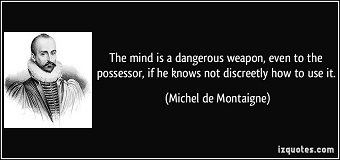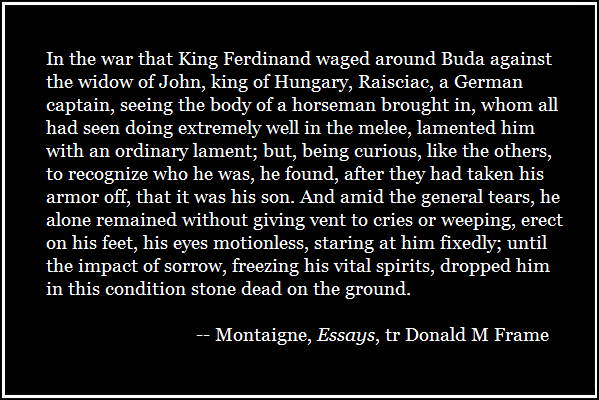Sports metaphor & politics, and much else besides, 2, post-Flake
Sunday, September 30th, 2018[ by Charles Cameron — after Sen Jeff Flake’s elevator epiphany and meet-up with his friend Chris Coons ]
.
What the nation got in the Flake-Coons accord is, at long last, a rare example of principle, empathy, bipartisan comity, seriousness, and leadership that holds at least a chance of preserving fairness and a shred of the Senate’s reputation. Pray that it’s not just a moment. https://t.co/fgA6ue89EQ
— john mclaughlin (@jmclaughlinSAIS) September 29, 2018
**
Jeff Flake’s Deal With Democrats Puts Kavanaugh’s Nomination in Limbo
A deeply divided Senate Judiciary Committee advanced President Trump’s pick for the Supreme Court, but final confirmation will depend on a reopened FBI inquiry.
Brett Kavanaugh’s nomination to the Supreme Court was all set to move unimpeded through the Senate Judiciary Committee on Friday morning.
Then Jeff Flake had a sudden change of heart.
Hours after declaring his support for Kavanaugh, the Arizona Republican simultaneously voted to advance the nomination in committee while warning party leadership that he would oppose President Trump’s nominee in a crucial floor vote unless and until the FBI conducts a further investigation into Christine Blasey Ford’s allegations that Kavanaugh sexually assaulted her at a high-school party in 1982.
**
MTP Daily, 9/28/2018:
This is a Republican who’s retiring, this is a Republican who’s more free of the political calculus ..
In the political calculus of the moment ..
“We respect her” is the new “thoughts and prayers” ..
**
The Beat, with Ari Melber:
Within hours of that confrontation, Senator Flake did something we rarely see in this choreographed, partisanship era ..
Barbara Boxer:
Time is a friend of Justice ..
Margaret Judson:
How Do You Play a Porn Star in the #MeToo Era? With Help from an ‘Intimacy Director’
In this moment, we are watching Hollywood take the high ground over the United States government. That’s a huge red flag. That’s not how this should work.The government should be holding the higher moral standard, and Hollywood it.
This guy shouldn’t be allowed to drive a car.
Ari:
That was the Twilight Zone A Few Good Men. It’s like, he thought he had the closing speech in A Few Good Men, but for a lot of the country he was in a different movie ..
Hardball:
Tell me how the sequence worked that led to this overtime in the game, so to speak ..
It does seem they’ve got the fire power, the candle power ..
what kind of pandora’s box ..
You get two supreme court nominees in the ideology of your liking, that’s sort of like a pitcher in the major leagues winning over 20 games, i mean that’as a hell of a season, and now that season’s in real jeopardy ..
the tip box is big, and it’s open ..
next up, a hairline fracture in the partisanship that has come to define American politics ..
he’s not intimidated by the 9 out of 10 republicans who back trump in every single thing; the others are hog-tied ..
i was struck by a profile in democracy — here was a guy who held an elevator door. senators have their own elevators in order to keep those people out..
battle of the genders looks like a draw ..
sen klobuchar: the constitution does not say, We the ruling party, she constitution says, We the people..
All In with Chris Hayes 9/28/2018:
Sen Hirono: the FBI investigation has to be complete. It can’t be some cursory kind of investigation that gives cover to some wavering senators. It’s got to be real ..
a lot of people felt like something was wrong and breaking, i mean, wrong in that it felt like there was a kind of torture being imposed on dr blasey ford .. profound legitimacy crisis that we’re watching happen in slow motion ..
it does feel as though something is fundamentally breaking, and I almost appreciate the fact that in the end the republicans took the mask off, and stopped allowing their prosecutor to ask questions, they decided to turn it into a big political show you saw what their endgame was, not really getting to the truth, but doing whatever was necessary to try to jam him through ..
**
Maya Wiley:
like inside baseball with no fans ..
A bit obvious, but the title is worth noting:
They should have started with hide & seek, which is the topic of the Krishna Lila, love in separation & union..
Elon Musk vs. the SEC: The Tesla billionaire gears up for the fight of his career
He has fought back viciously by calling his opponents names like “saboteur,” “idiot” and “pedophile.” Now, Tesla chief Elon Musk is embracing the same kind of combative approach to wage the fight of his career against the Securities and Exchange Commission.
Musk is as close to sainthood as one can get in Silicon Valley, a sci-fi virtuoso who has captured imaginations with gambles on soaring rockets, electric supercars and brain-computer links. A critical element of his cult of personality: He rarely backs down from a fight.
That last paragraph has an interesting four-part evaluation of Musk: close to sainthood .. sci-f- virtuoso .. cult of personality — fight. If I was setting that para to music, it would definitely be on a descending arpeggio..
hit man .. sabotage
History doesn’t rhyme, it DoubleQuotes?
Shady Watergate Reporters Target Trump
Imagine a replay of Watergate –only worse.
In both the original and the replay, the same Washington D.C. reporter, whose parents were Communist Party members connected to Soviet atomic spies and who were under FBI surveillance for decades, teamed up with the same second D.C. reporter, who was outed as an “FBI asset,” to take down a sitting Republican President of the United States.
In both instances the “unnamed source” leaking information to these two reporters turned out to be the Deputy Director of the FBI.
This is a remake.
Some of the players have even reprised their old roles.
[ .. ]
This is stunning – decades apart in time two separate FBI Deputy Directors leaked information about the then-sitting President of the United States to a pair of reporters, one of whom hails from a family intertwined with the Soviet spy ring that handed America’s nuclear secrets to Joseph Stalin and the other of whom was an “FBI asset.”
Both of these FBI Deputy Directors had to know with whom they were dealing.
**
A brace of interesting articles, both by John Seabrook:
New Yorker, Don’t Shoot: A radical approach to the problem of gang violence [2009] New Yorker, Operation Ceasefire and the Unlikely Advent of Precision Policing [2018]
Some high spots from the former:
Captain Daniel Gerard, who took over Vortex in the fall of 2007, didn’t put much stock in their ideas. As he said, “Academia and law enforcement are at opposite ends of the spectrum. They like theories, we like results.”
Kennedy was tall and slim, and in the dark clothes he favored there was something about him of the High Plains Drifter -— the mysterious stranger who blows into town one day and makes the bad guys go away. He wore a grizzled beard and had thick, unbound hair that cascaded halfway down his back. “What’s some guy who looks like Jesus got to tell us about crime in Cincinnati?” was the line around police headquarters.
Kennedy had been approached by Dr. Victor Garcia, the head of the trauma unit at Cincinnati Children’s Hospital Medical Center, who was seeing almost daily the effects of the city’s violent gangs: the stabbings, shootings, and beatings, and the injuries to innocent children caught in the crossfire. “Children with their eyes shot out, children paralyzed,” Garcia told me. “I started to wonder, instead of treating injuries, how can we prevent them from happening in the first place?”
Often, much of the violence is caused by gang dynamics: score settling, vendettas, and turf issues, all played out according to the law of the streets.
Whalen explained to me the C.P.D.’s distinction between social workers and cops: “Social people hug thugs. We kick their butts.”
I particularly appreciate the echo of ““Academia and law enforcement are at opposite ends of the spectrum. They like theories, we like results” in “Whalen explained to me the C.P.D.’s distinction between social workers and cops: “Social people hug thugs. We kick their butts.””
**
Movie correlates:
High Plains Drifter – A Shave and a Shootout:
You Can’t Handle the Truth! – A Few Good Men:






